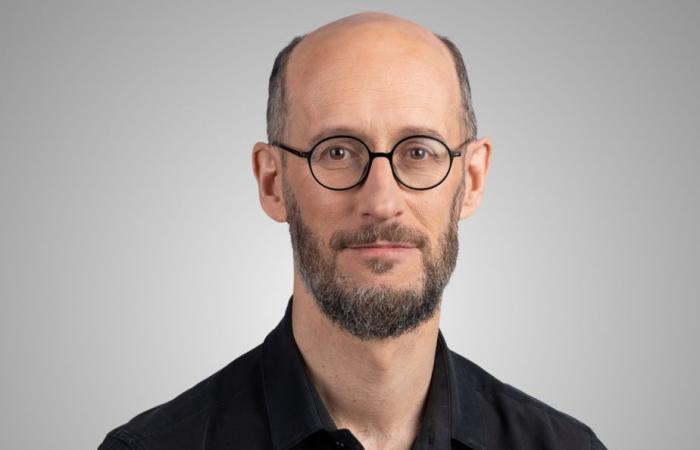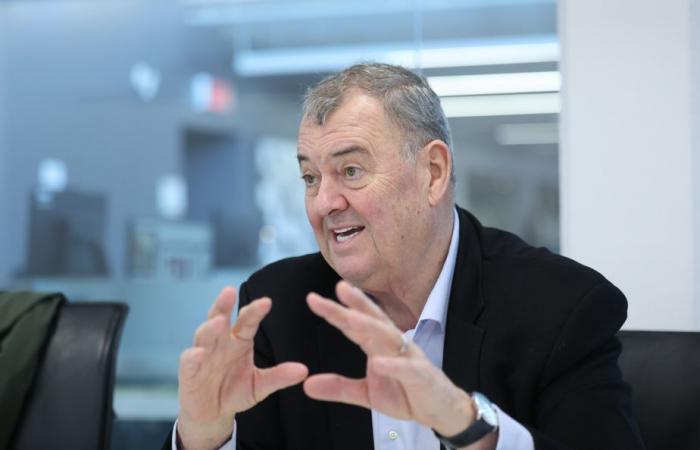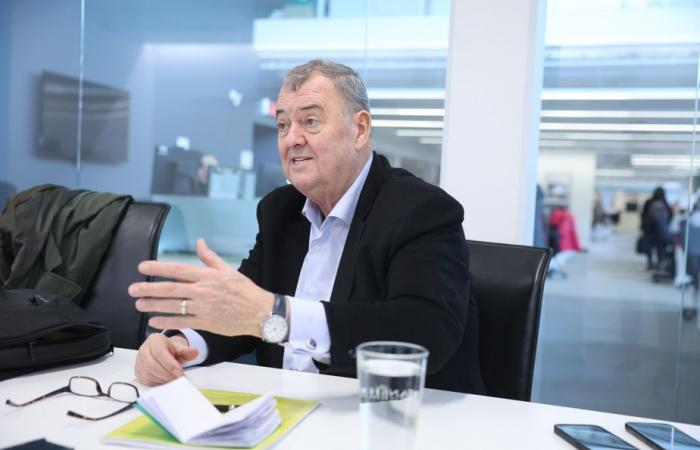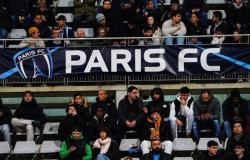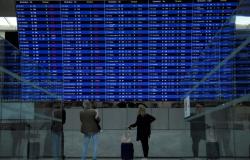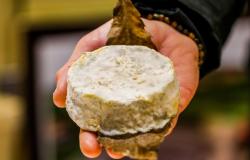Henri-Paul Rousseau had never publicly addressed the painful commercial paper crisis of 2007, which shook the Caisse de dépôt that he headed at the time.
Posted at 1:23 a.m.
Updated at 5:00 a.m.
But in an interview, he told me today that he has no regrets, although the Fund was one of the central links in this $32 billion storm. The restructuring of the sector, of which he was the architect, made it possible to avoid the worst, he says.
Mr. Rousseau, now Quebec’s general delegate in Paris, acknowledges that there “were errors made”, but maintains that “the errors have been corrected”.
In 2007, the Caisse de dépôt held approximately 13 billion of the 32 billion dollars of non-bank commercial papers. Thanks to the restructuring, says Henri-Paul Rousseau, the Caisse finally recovered 95% of its bills after a few years, including interest.
Without this Montreal agreement, in which several international banks participated, he asserts, institutions like the National Bank and the Desjardins Movement would have suffered.
“I know because they told me and they said it publicly. If we had not done the restructuring that we did… The restructuring allowed our institutions to get through it, the National Bank and Desjardins, and our big Canadian banks too.
“And without the restructuring, Canada would have been the source in 2007 of the global financial crisis which finally took place in 2008,” Mr. Rousseau told me in an interview, who says he received help from Mark Carney at the era (then deputy governor of the Bank of Canada, became governor in 2008).
The asset-backed commercial paper (ABCP) crisis was triggered in August 2007 when financial institutions did not want to provide the liquidity necessary to ensure the continuation of purchases and sales of these short-term securities, due to a crisis of confidence. Each non-bank commercial paper was made up of multiple tranches of company securities on the stock market, but also of tranches of very risky and little-known mortgage loans (subprime).
The agreement made it possible to unravel the commercial papers whose maturity was 3 months and to convert the term of the new securities created to 7 years. According to Mr. Rousseau, investors who were patient and waited the 7-year term before monetizing the securities lost little.
At the time, negotiations with global financial institutions were very difficult and extremely complex. The CEO had to play all his cards.
PHOTO MARTIN CHAMBERLAND, THE PRESS
Former CEO of the Caisse de dépôt Henri-Paul Rousseau
I had 40% of the position and I used it. We lost the lead 7-8 times, and each time, I called the bluffs by saying: “If you leave, I’ll leave too.” And each time, they agreed to compromise.
Henri-Paul Rousseau, former CEO of the Caisse de dépôt
Henri-Paul Rousseau came out exhausted. “I came out burned, physically exhausted, because it was night and day for a year. This story has never been explained,” he says.
“The conclusion is that we were good, but we were lucky. And personally, I sleep in peace. I sleep well, because I know what we did. Can I change public opinion on this? No. But it’s not a battle we fight. »
For the curious, you should re-read the excellent file published in The Press in 2017 or the survey on the management of the Fund published in 2009.
Read the file “Crisis of 2008, ABCP: a global catastrophe averted”
Read the article “Caisse de dépôt: ABCP purchased with borrowed money”
Read the article “ABCP: the Caisse acted on both sides of the fence”
Henri-Paul Rousseau praises the Macron strategy
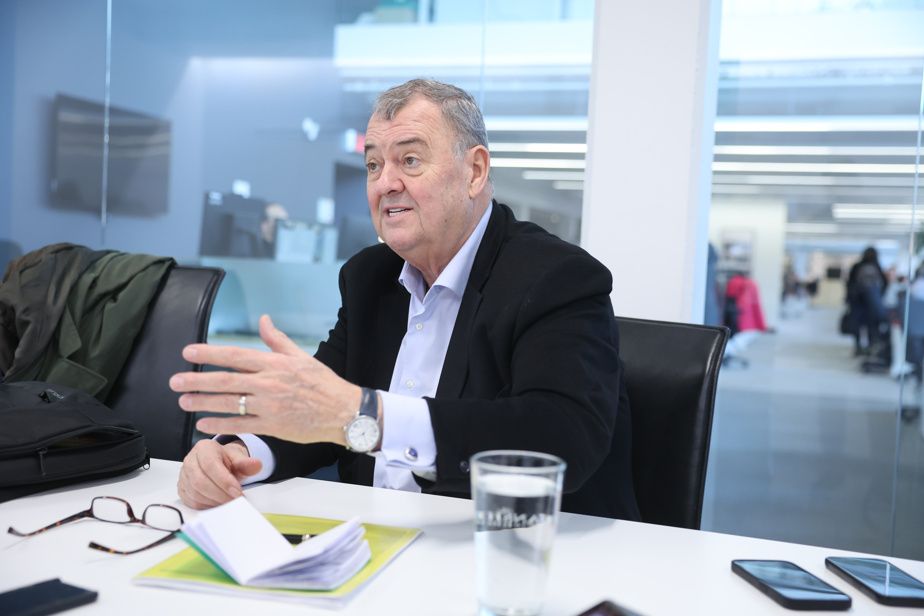
PHOTO MARTIN CHAMBERLAND, THE PRESS
Henri-Paul Rousseau, former CEO of the Caisse de dépôt and general delegate of Quebec in Paris
According to the news, France has enough to scare investors. Record deficit, stagnant economy and fragmented political power are likely to put off the most daring.
However, this is not the perception that the new general delegate of Quebec in Paris, Henri-Paul Rousseau, who took office in July, has. On the contrary, the one who was CEO of the Caisse de dépôt et placement believes that the period is favorable for networking with companies in France, France being at the dawn of major progress.
“The French economy is transforming at dizzying speed. Mr. Macron, with the help of the private and public sectors, has really given a boost to French entrepreneurship,” Mr. Rousseau told me in an interview.
France has modified its Labor Code and reduced its regulations, so much so that it has been the country where the attractiveness of investments has been the highest in recent years in Europe, he explains.
President Emmanuel Macron’s plan has liberated entrepreneurship, the 76-year-old tells me, who says he is lucky to be in good health and still full of energy.
Henri-Paul Rousseau talks to me about “French Tech” and the launch of the France 2030 program, embraced by the business and research communities.
This 50 billion euro program launched in 2017 aims in particular to restore France’s competitiveness and stimulate its innovation. It affects the technology, energy and pharmaceutical sectors, among others.
Observers have reason to be skeptical of France’s dynamism. The country is politically divided, its GDP grows at an annual rate of only 1.3% and its public deficit is enormous.
Three times Canada’s deficit
The deficit of all French public administrations will exceed 6% this year, far from the 3% standard required by the European Union. The situation prompted the Moody’s agency to put a negative outlook on France’s credit rating, which is Aa21.
In comparison, Canada’s public administrations (federal, provincial and municipal) have a deficit of 1.7% this year, three times smaller.
To get out of this impasse, the new government led by Prime Minister Michel Barnier is proposing a budget where the 60 billion euros required to return to a deficit of 5% of GDP would be covered by two-thirds through spending cuts and at third party through tax increases.
As the government is in a minority, it is envisaged that it will use article 49.3 of the Constitution to adopt it.
The statistics say that consumption is not doing very well. We’re not experiencing incredible growth, that’s true. But at the same time, culturally, things are developing in France. And these are touches of hope.
Henri-Paul Rousseau, general delegate of Quebec in Paris
The economist quotes me a recent study by JP Morgan which concludes that the geopolitical context is a poor predictor of economic and stock market progress in Western countries. “Business people, their bread and butter is uncertainty,” he says.
The France 2030 program is in harmony with Horizon Europe, the largest funding program for research and innovation in the world.
According to Mr. Rousseau, relations between businesses in Quebec and France are developing a lot around this shift in innovation. Among those active there, he mentions the energy storage company Evlo, Hydro-Québec, the wind energy producer Boralex (3e in France) or the Lithion firm (recycling of lithium-ion batteries).
“Many of our companies have had the sense to stick to these programs,” he says.
In total, there are 380 Quebec companies operating in France, whether we think of CGI, Power Corporation or others. Conversely, 500 French companies are present in Quebec, including 75% of the 40 companies that make up the Parisian CAC 40 stock index.
A Quebec-France 200 network
According to Mr. Rousseau, the tense geopolitical situation the planet is experiencing makes networks even more important. And in this regard, he considers it essential that key Quebec companies ally themselves with French partners. This type of network is likely to increase our exports and bring about French investment projects here.
The financier knows something about this. With entrepreneur Charles Sirois, he founded the QG 100 network in 2007, as “Quebec global 100”. Today, 108 companies are members, by invitation, winning companies, present on at least two continents and profitable for at least 5 years.
“This group has developed a fraternity of exchange, with an annual strategic retreat, where expert advisors are present. My dream is to do the same thing between companies from Quebec in France and those from France which are here. It could be called France-Québec 200,” he said.
Let us hope that Henri-Paul Rousseau speaks the truth. And may his dream help our businesses to focus more on France and Europe and to prosper.
1. This is a rating similar to that of Quebec (which is not under negative outlook), but two ranks below that of Canada, which has the highest possible, Aaa.

